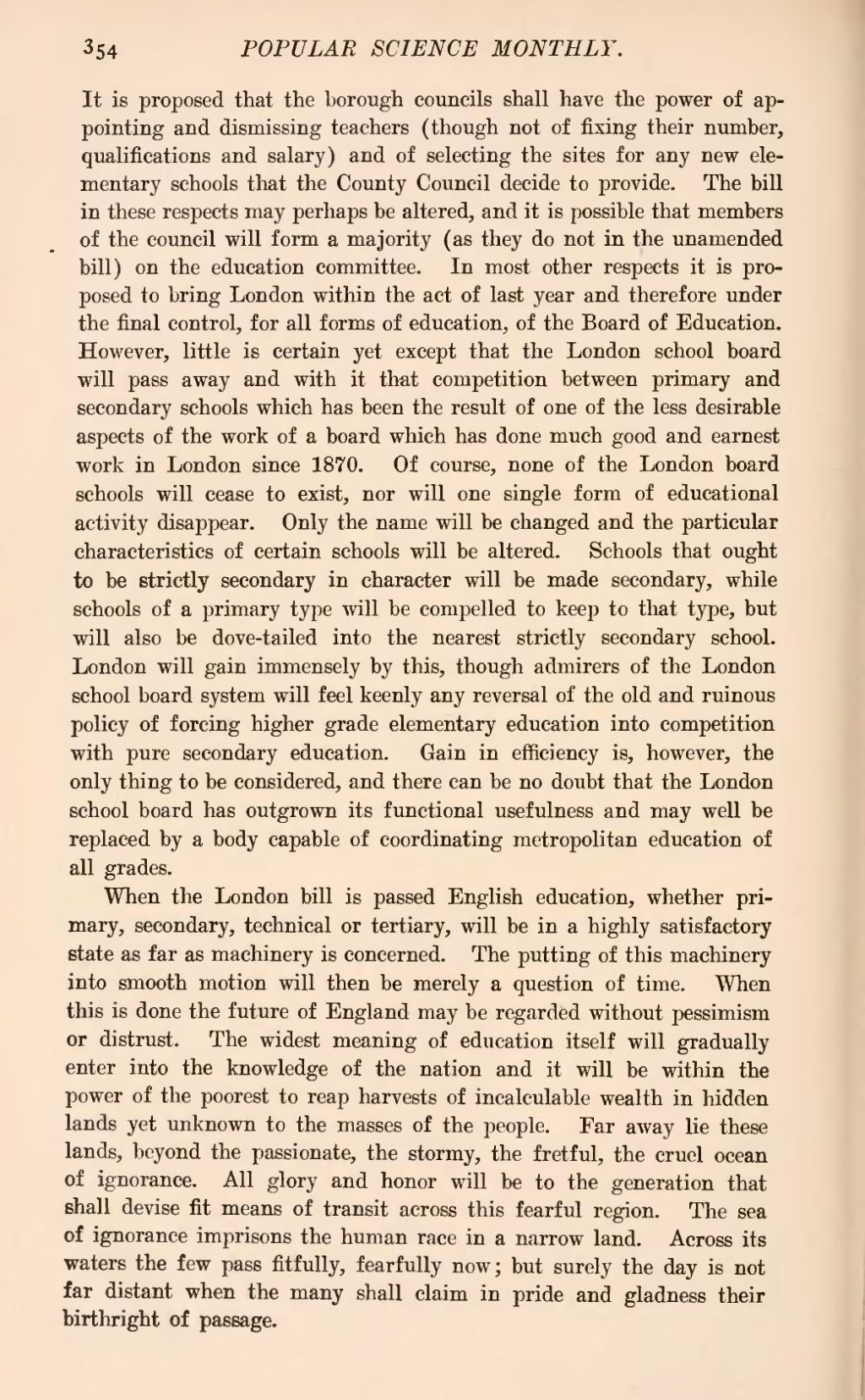It is proposed that the borough councils shall have the power of appointing and dismissing teachers (though not of fixing their number, qualifications and salary) and of selecting the sites for any new elementary schools that the County Council decide to provide. The bill in these respects may perhaps be altered, and it is possible that members of the council will form a majority (as they do not in the unamended bill) on the education committee. In most other respects it is proposed to bring London within the act of last year and therefore under the final control, for all forms of education, of the Board of Education. However, little is certain yet except that the London school board will pass away and with it that competition between primary and secondary schools which has been the result of one of the less desirable aspects of the work of a board which has done much good and earnest work in London since 1870. Of course, none of the London board schools will cease to exist, nor will one single form of educational activity disappear. Only the name will be changed and the particular characteristics of certain schools will be altered. Schools that ought to be strictly secondary in character will be made secondary, while schools of a primary type will be compelled to keep to that type, but will also be dove-tailed into the nearest strictly secondary school. London will gain immensely by this, though admirers of the London school board system will feel keenly any reversal of the old and ruinous policy of forcing higher grade elementary education into competition with pure secondary education. Gain in efficiency is, however, the only thing to be considered, and there can be no doubt that the London school board has outgrown its functional usefulness and may well be replaced by a body capable of coordinating metropolitan education of all grades.
When the London bill is passed English education, whether primary, secondary, technical or tertiary, will be in a highly satisfactory state as far as machinery is concerned. The putting of this machinery into smooth motion will then be merely a question of time. When this is done the future of England may be regarded without pessimism or distrust. The widest meaning of education itself will gradually enter into the knowledge of the nation and it will be within the power of the poorest to reap harvests of incalculable wealth in hidden lands yet unknown to the masses of the people. Far away lie these lands, beyond the passionate, the stormy, the fretful, the cruel ocean of ignorance. All glory and honor will be to the generation that shall devise fit means of transit across this fearful region. The sea of ignorance imprisons the human race in a narrow land. Across its waters the few pass fitfully, fearfully now; but surely the day is not far distant when the many shall claim in pride and gladness their birthright of passage.

